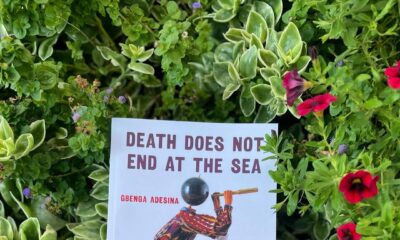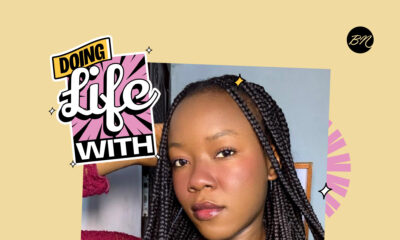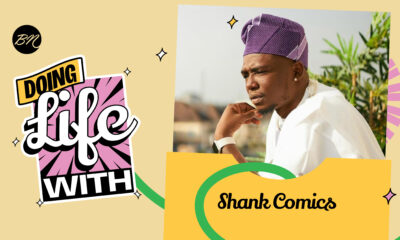Features
Maureen Onwunali On What Poetry Knows About Home in Today’s “Doing Life With…”
Writing within the diaspora, you realise that you’re living a hybrid of experiences, like speaking in your mother tongue with a European accent. I am the accumulation of all the places I’ve lived, and the people I’ve met–my work is a reflection of that.
Doing Life With… is a BellaNaija Features series that showcases how people live, work, travel, care for their families and… everything in between. We are documenting the lives of all people and ensuring everyone is well-represented at BN.
Did you miss our last conversation with Princess Adesile? You can catch up here.
Today, we’re doing life with Maureen Onwunali, a Dublin-born Nigerian poet. 22-year-old Onwunali is a two-time national slam champion and resident artist at The Roundhouse.
Enjoy the conversation!
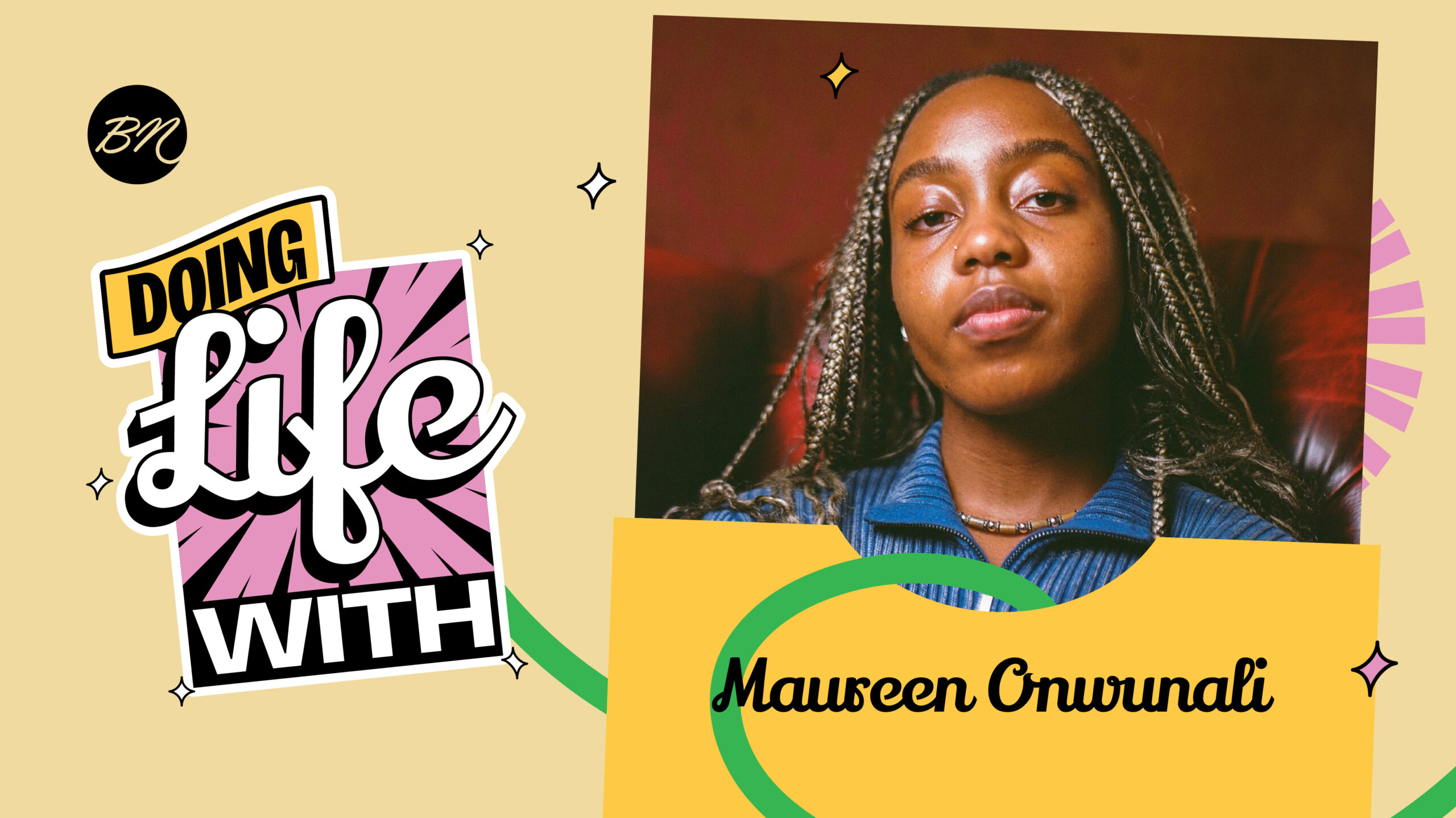
Hey Maureen. Thanks for being here. How are you feeling?
Hi, Ahmad, thank you for having me! I’m honoured to be here.
Let’s start from here–do you have memories of Nigeria, either lived or inherited, that continue to shape your identity and your voice as a poet today?
I think it’s the plight of any parent to pack as much of their homeland into 23kg suitcases and emulate the culture as best they can, wherever they may be. I may have been born in Ireland, but in our home, it is Abia state. My Igbo identity is fundamental to who I am as a person.
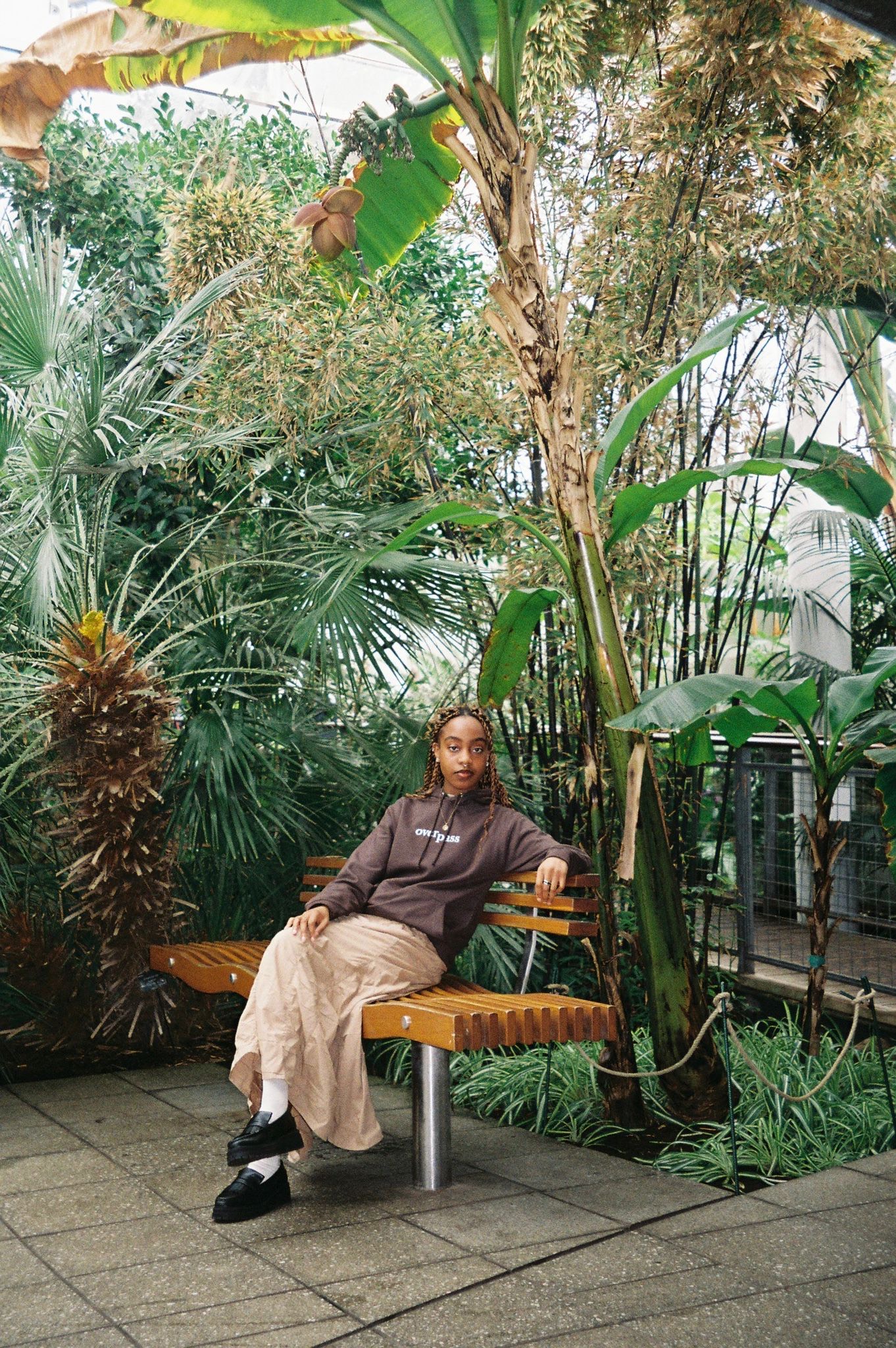
Photo by India Summer Armstrong
Many of your poems carry weights, indescribable weights. When did poetry become the language you use to hold life complexities? In other words, when did you discover poetry?
Poetry first found me as a shy twelve-year-old in primary school. It was at that time I realised how everyday language often fails us, especially in our attempts to communicate our emotions. Poetry for me celebrates the beauty of sameness, drawing on mundane experiences we all share. Regardless of who you are or the life you live, we are all waking up under the same sun. We’re in this life together, and it’s through poetry that I try to remind people of that.
Your collection, Homegrown, what was the emotional or creative turning point that led you to put it together? Was there a particular poem that unlocked the rest of the collection?
“Blessed be our mothers’ bones – the backbone to our black homes.”
That was a line taken from a poem I had written previously. I think the collection Homegrown was grounded in the idea of home being more than the four walls around you, but also the flesh and bone that surrounds you. It’s about the feeling of comfort we find in others, but most importantly, making a home within yourself.
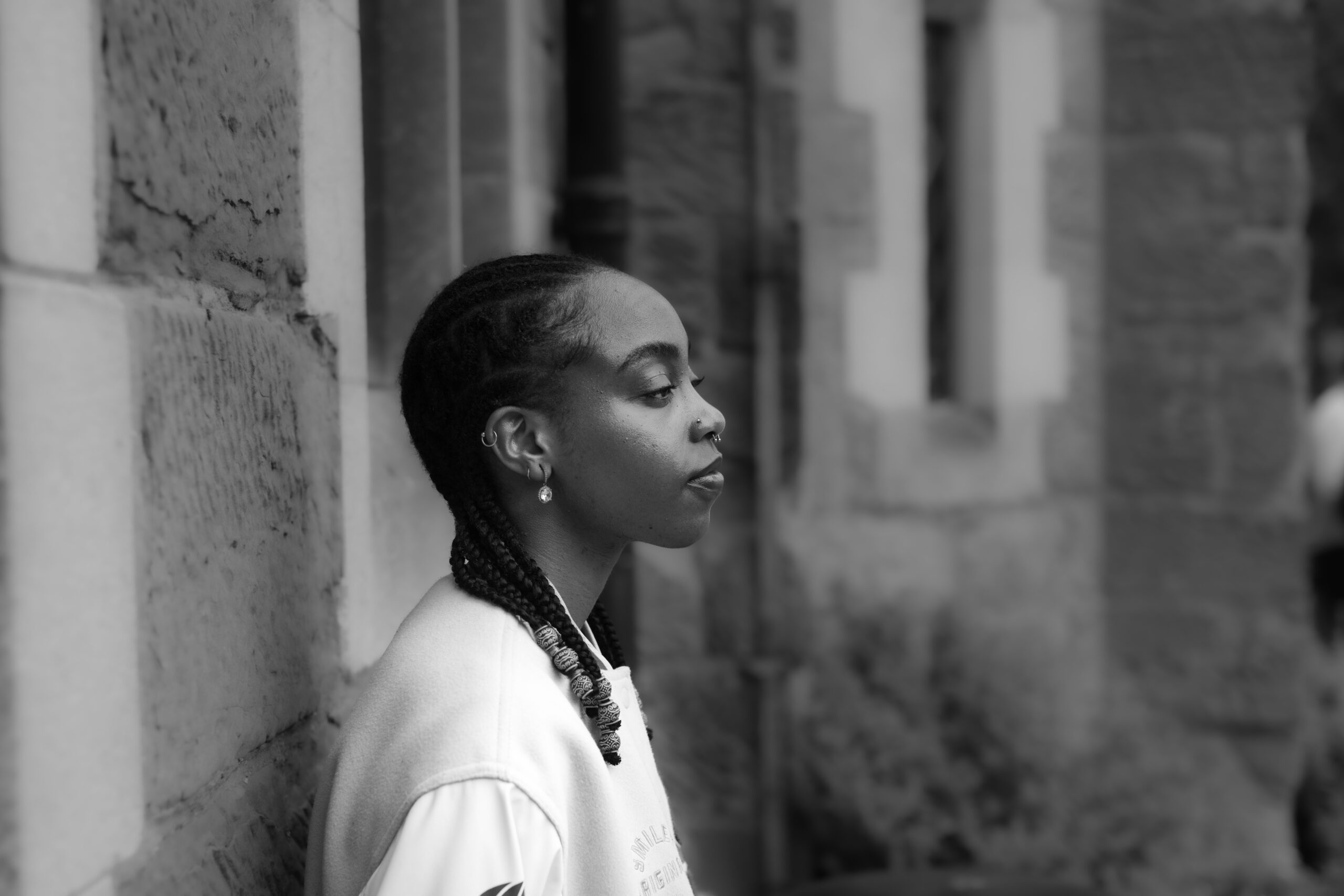
Photo by Trevor Bailey
As someone with Nigerian roots, how do you navigate the in-between–that space of dual belonging–both on and off the page?
In my work, I often write about belonging and otherness. The feeling of being pulled in different directions by different identities. It’s not necessarily a bad thing. Writing within the diaspora, you realise that you’re living a hybrid of experiences, like speaking in your mother tongue with a European accent. I am the accumulation of all the places I’ve lived, and the people I’ve met–my work is a reflection of that. That’s the beauty of multiculturalism today: you’re constantly re/defining who you are.
Your live performances are always powerful. There is something about your voice that makes the delivery more moving. What changes for you when a poem leaves the page and enters a room full of people?
Thank you. I’m a firm believer that most poems should be spoken. It’s one thing to write a poem, but it’s another to breathe life into the words. No one will ever do it justice like the original author. When that poem enters a room full of people, it has taken on new life. It will go home and hopefully stay with them for as long as they can hold on to it.
Tell me, do you have a creative process? How would you describe it?
I wouldn’t say I have a process, per se, as my writing usually occurs in spontaneous bursts, often stopping me in my tracks, so I keep my phone on me to capture my thoughts. However, sometimes when I’m experiencing writer’s block, I just need to go live my life for a while: If you’re writing about the world, you need to be a part of it. Experience is the best teacher.
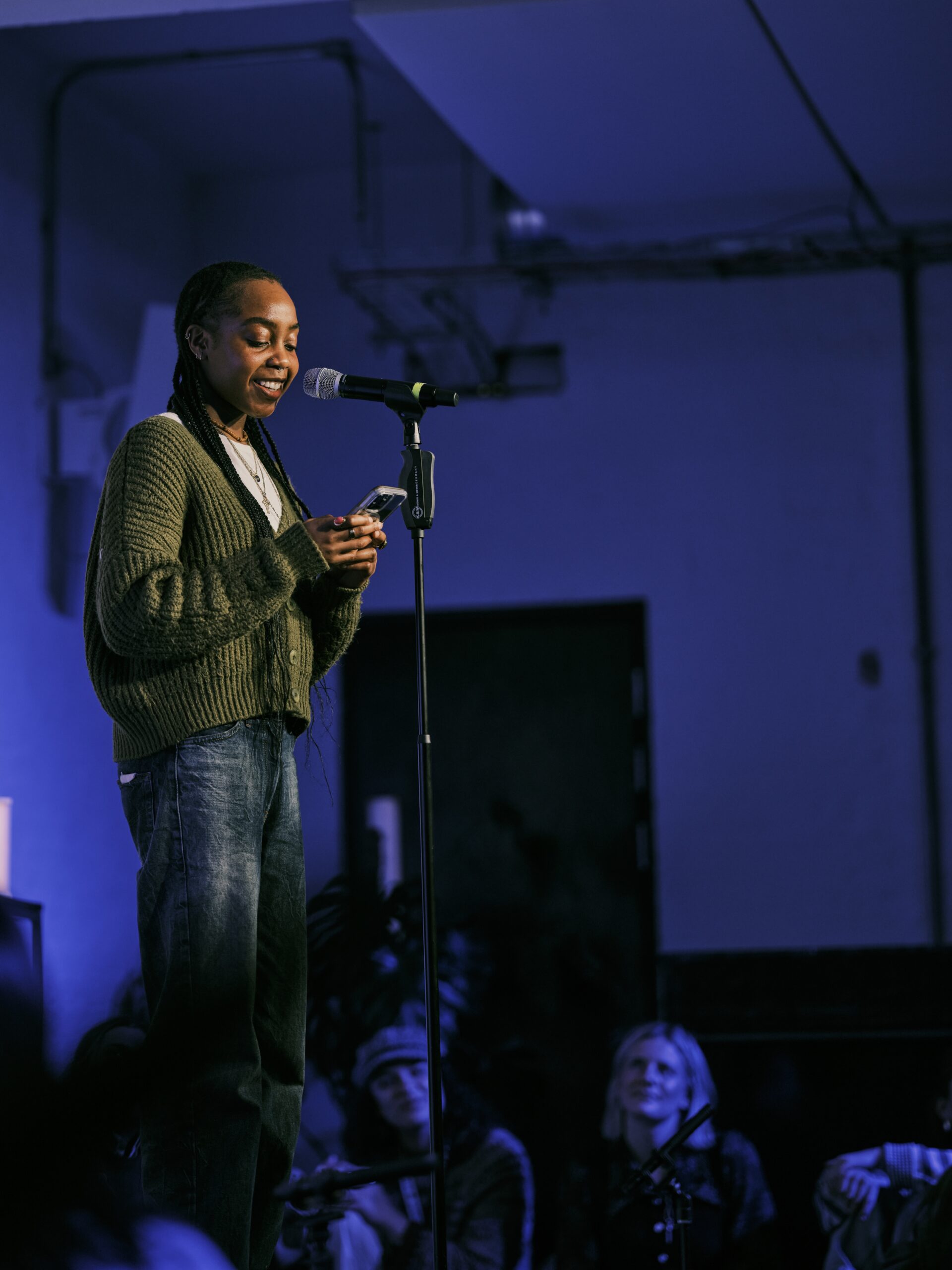
Photo by Tyrone Lewis
As a Roundhouse Resident, you’ve had the chance to develop your artistry in community with other creatives. What has that experience taught you about collaboration, growth, or even vulnerability?
The residency has reminded me that no man is an island, and no artist can be great by themself. A lot of creative practices, particularly poetry, can be very isolating if you close yourself off, so it’s very important to surround yourself with people very different to you/ your practice. Collaboration is essential
Beyond poetry, what do you do for fun? Tell me about your background, education and any part of your childhood that shaped who you are today?
I’m 22 years of age. I was born in Ireland, and my parents are Nigerian, from Aba, Abia State. I graduated from the University of Warwick with a degree in Politics and Sociology last summer. I’ve always been very passionate about politics, and that passion has certainly shaped what I deem important in life. My poetry reflects that.
I’ve moved around quite a bit, so I have gotten familiar with talking to/ understanding people (and myself by extension). Having to reintroduce oneself means finding out about what we hold dear. I always enjoy meeting new people and building connections. For fun, I like to keep hobbies that I’m not necessarily good at, but that keep my mind sharp. I also enjoy cooking.
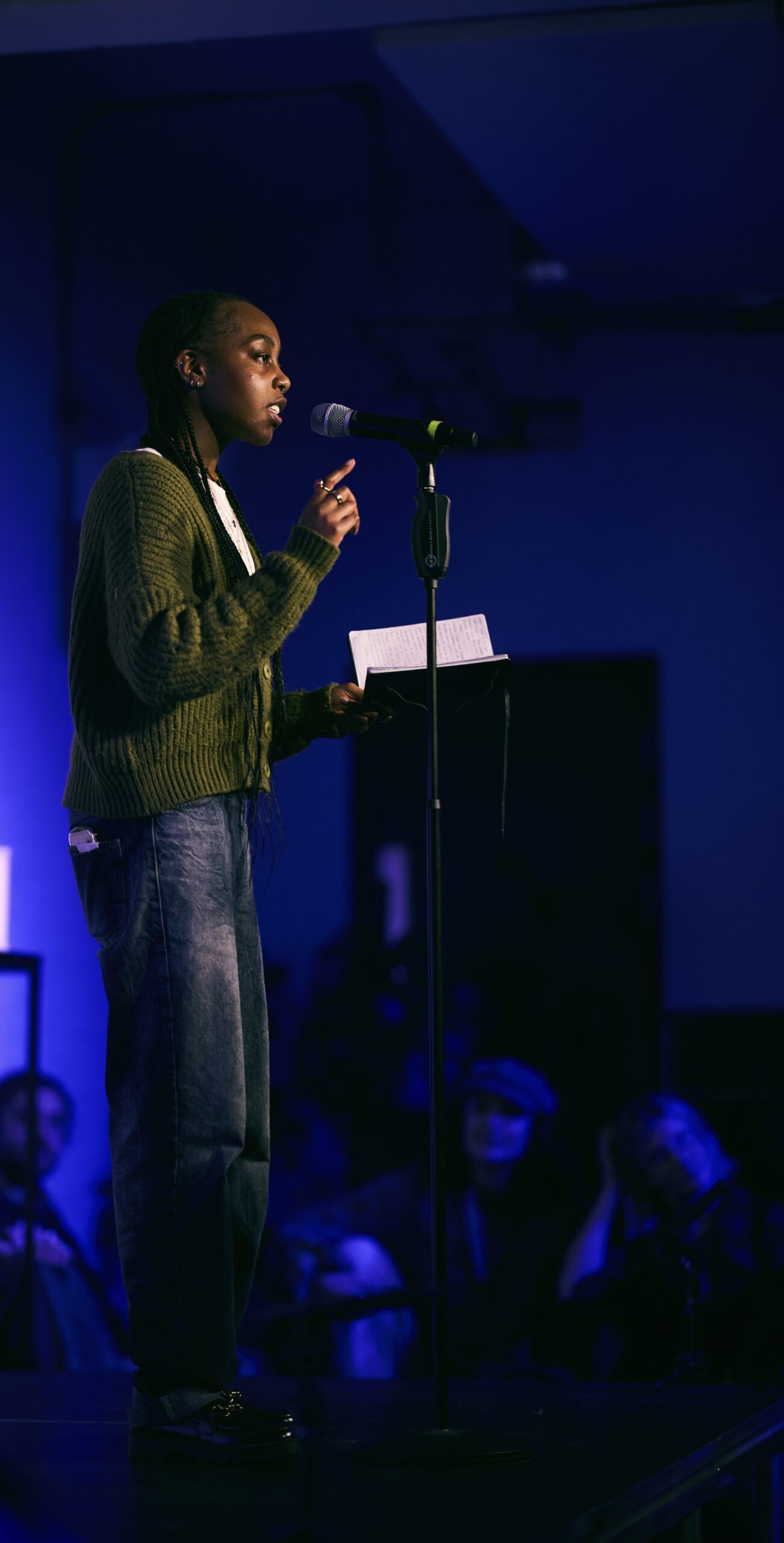
Photo by Tyrone Lewis
What does a typical day look like for you?
A typical day will generally include travelling to a different city for a performance and sorting through personal admin – I find I spend most of my days staring out of train windows and writing. When I’m not writing, I’m thinking about writing. I usually end my evenings by giving thanks to God for the day I’ve had and plan ahead for the next one.
Thank you for being on Doing Life With, Maureen
Thank you for having me.
_____________________
Many thanks to Maureen Onwunali for having this conversation with us and answering all our questions – and swiftly too, we must add.
Do you love this content, have any feedback for us or want to be a BellaNaija Features contributor? We’d love to read from you. Shoot us an email: [email protected]. Join us on Saturday for the next episode!


